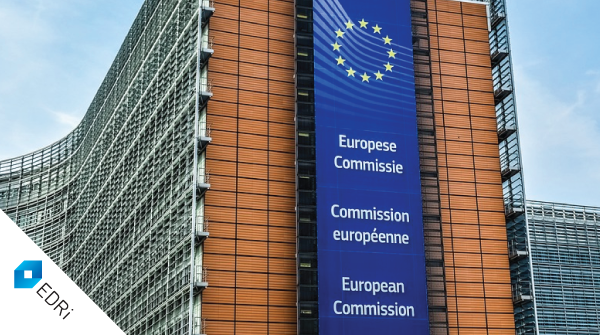EU Commissioners candidates spoke: State of play for digital rights
On 1 November 2019, the new College of European Commissioners – comprising 27 representatives (one from each EU Member State), rather than the usual 28, thanks to Brexit – are scheduled to take their seats for the next five years, led by incoming President-elect, Ursula von der Leyen.

A leading role in Europe’s digital future
EU Commissioners are a powerful bunch: as the executive branch of the European Union – complementing the European Parliament and the Council of the European Union as legislators, and the Court of Justice of the European Union (CJEU) as judiciary – the College’s wide-ranging responsibilities cover EU policy, law, budget, and “political and strategic direction”. With digitalisation an issue that transcends borders, the choice of Commissioners could have an impact on digital rights across the world.
Between 30 September and 8 October 2019, the Commissioners-designate underwent marathon confirmation hearings in the European Parliament. These hearings give the EU elected representatives (Members of the European Parliament, MEPs) an opportunity, before voting on the Commissioners-designate, to ask them questions about their capacities and potential priorities if elected. Among the three that did not make the cut was France’s nominee for Internal Market, Sylvie Goulard, whose late-stage rejection may delay the start of the new Commission.
A shared task to update Europe for the digital age
Five of the incoming Commissioners’ portfolios are predicted to have a significant influence on digital policy. Carved up by President von der Leyen, their overlapping responsibilities to make Europe fit for the digital age could make or break citizens’ rights to privacy, data protection and online freedoms in general:
- Sweden’s Ylva Johansson, Commissioner-designate for Home affairs, will inherit a portfolio including cybercrime, terrorist content Regulation and issues relating to privacy and surveillance. Whilst her hearing was relatively light on digital questions, it was certainly heavy in evasive answers. Her insistence on fundamental rights was a good start, but her call for compromise between security and privacy fell into the age-old myth of the two rights as mutually exclusive.
- Belgium’s Didier Reynders, Commissioner-designate for Justice and Consumers, championed rights by committing to enforce the General Data Protection Regulation (GDPR) to its fullest extent. On Artificial Intelligence (AI) and data protection, he promised swift law, safety, trust, transparency, and for those making or judging the law to better understand the impacts of algorithmic decisions. He cited plans for a collective redress position in November.
- No-longer-Commissioner-designate Sylvie Goulard, of France, lost her chance to oversee the Internal Market. Although Goulard pitched increased digital education and maintaining the EU’s data policy leadership, Members of the European Parliament (MEPs) were far more concerned with Goulard’s past. Accusations of impropriety in her former role as a French defence minister, and high earnings as a private consultant in office, led MEPs to conclude that she lacked the integrity to be a Commissioner. Update: Thierry Breton has been appointed as the new Commissioner-designate for the Internal Market. (7 November 2019)
- The Czech Republic’s Věra Jourová (current Commissioner for Justice) made her case as Commissioner-designate for Values and transparency. Democracy, freedom of expression and cracking down on disinformation were key topics. Despite an understated performance, she called Europeans “the safest people on the planet.” She is right that GDPR sets a strong global standard, but it has faced a rocky implementation, and as of today requires further efforts to ensure the harmonisation that the Regulation prescribed.
- Last was Denmark’s Margrethe Vestager for Executive Vice-President for a Europe fit for the digital age, and continuing as Competition Commissioner. Her anti-Big-Tech, “privacy-friendly”, pro-equality, redistribution agenda was well received. She faced questions about breaking up Big Tech, leaving it on the table as a “tool” of last resort but emphasising her desire to exhaust other avenues first. But she stumbled when it came to accusations that her aspirations to rein in Big Tech are incompatible with her remit as leader of the EU’s digital affairs.
The implications on digital policy
Throughout the hearings, the Commissioners-designate made many commitments, emphasised their policy priorities, and shared their plans for the future. Although we do not know exactly how this will translate to concrete policy, their hearings give valuable insight into how the new College intend to tackle rights challenges in the online environment. This is not an exact science, but we invite you to join us – and our “rightsometer” – to speculate about what impact the nominees’ ideas will have on citizens’ digital rights over the next five years, based on what the nominees did (and did not) say.
Privacy
Key legislation: ePrivacy
The currently stalled ePrivacy Regulation was unsurprisingly raised by MEPs – and, reassuringly, Vestager shared that “passing ePrivacy” needs to be “a high priority”.
Result: with Vestager’s support, it is a cautiously optimistic 3/5 on the rightsometer – but the troubled history of the Regulation also warns us not to be too hopeful.

Platform power
Key legislation: E-Commerce Directive (ECD), slated to be replaced by the upcoming Digital Services Act (DSA)
Vestager was the champion of regulating Big Tech throughout her hearing, proposing to redress the balance of power in favour of citizens, and giving consumers more choice about platforms. But she later confessed to uncertainty around the shape that the DSA will take, saying that she needs to “take stock” before committing to a position on E-Commerce. Jourová committed to redress in the event of wrongful takedown of content, and emphasised her strong support for the DSA. However, she suggested her intention to explore platform “responsibility” for illegal content, a move which would threaten myriad human rights.
Result: the rightsometer gives an inconclusive 2.5/5, with commitments to strengthening Big Tech regulation promising, but risks of unintended consequences of some of their ideas remaining a big concern.

Disinformation
Key document: Code of Practice on Disinformation
Jourová committed to tackling the problem of online disinformation, promising to bring in codes of conduct for platforms; to make it clear where political advertisements come from, and by whom they are funded; as well as enforcing “rules” for political campaigning.
Result: it’s a positive 4/5, and we encourage Jourová to analyse the risks of targeted political advertising and the online tracking industry caused by dysfunctional business models. However, a cautionary approach is needed (see Access Now, EDRi and Liberties Guide on Disinformation).

Law enforcement and cross-border access to data
Key legislation: “e-Evidence” proposal
Under direct questioning from MEP Moritz Körner about plans to advance e-Evidence, Commissioner-designate Johansson declined to provide a reply. She also insinuated that fundamental rights to encryption might be incompatible with fighting terrorism.
Result: e-Evidence makes for a pessimistic 0/5 on the rightsometer, with nothing to give confidence that this controversial proposal is being reassessed.

Artificial Intelligence (AI)
Key legislation: none proposed yet – but both von der Leyen and Reynders promised “horizontal” legislation in 100 days
Jourová emphasised that fundamental rights in AI innovation will “ensure that our solutions put people first, and will be more sustainable as a result”. Vestager added that ethics will be at the heart of AI policy, and Reynders that Europe’s “added value” is in bringing protection for privacy and data to future AI legislation.
Result: a promising 4/5 on the rightsometer; we welcome the Commissioners’-designate focus on fundamental rights when implementing AI-based technologies.

Where does that leave our digital rights?
Disinformation, Artificial Intelligence, privacy, and mitigating platform power were all given substantive commitments by the Commissioners-designate. Protecting fundamental rights online was, thankfully, a persistent concern for all the nominees. Certain topics, such as “digital literacy” were mentioned, but not given any flesh, and nominees also declined to answer a number of “too specific” questions. Although there was lots about which we can be optimistic, the balance between rights and law enforcement or innovation means that we should stay cautious.

Access Now: Meet the European Commissioners: Who will shape the next five years of digital policy in the EU? (27.09.2019)
https://www.accessnow.org/meet-eu-commissioners/
EDRi: Open letter to EU Member States: Deliver ePrivacy now! (10.10.2019)
https://edri.org/open-letter-to-eu-member-states-deliver-eprivacy-now/
Access Now, Civil Liberties Union for Europe and European Digital Rights: Joint Report on Informing the “Disinformation” Debate (18.10.2018)
https://edri.org/files/online_disinformation.pdf
(Contribution by Ella Jakubowska, EDRi intern)


